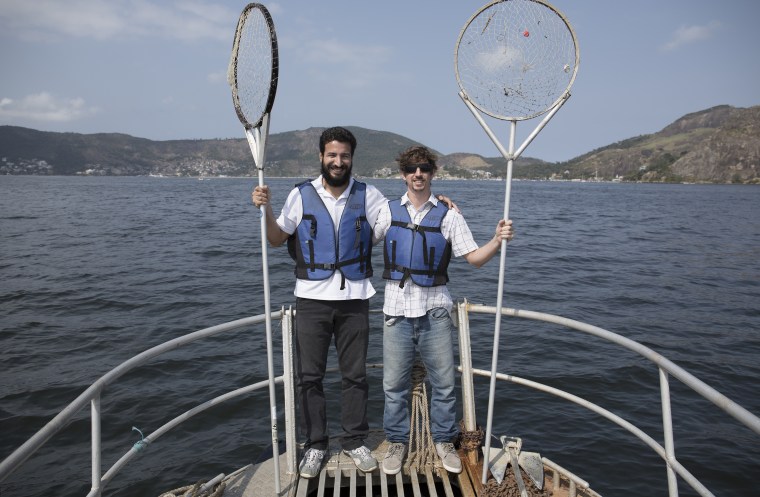RIO DE JANEIRO — Across the Guanabara Bay, home to this weekend’s Olympic sailing events, one organization is using water sports as a tool to teach the next generation how to care for the 159-square-mile natural resource in Rio’s backyard.
Even if it's too late for this week’s competitors, some of whom have expressed concern over the polluted state of the waters.
“We teach them to be good citizens,” explains André Alcântara Martins, sports coordinator for the Projeto Grael, a non-profit that gives underprivileged students access to a pastime normally reserved to the elite.
Through Projeto Grael’s program, kids as young as 9 years old who haven't had yet had the opportunity can learn how to sail or swim. The idea is that these kids will fall in love with the water and in turn learn how to respect the environment.

“You can’t separate the environment from sailing, they work together,” says Martins, a mariner himself.
The state of the sailing venue has been a sore point for the Olympic organizers since Rio failed to deliver on its promise to treat 80 percent of its sewage. Although there has been progress, the city has fallen short of its goal.
“I see the potential for change since we work in education,” says Thiago da Silva Marques, the coordinator of environmental programs for the Grael Project. “And education is a fundamental part of us building a more sustainable society, of us having a maintained Guanabara Bay.”
Over 12,000 kids have gone through the program since it was founded in 1998 by Brazil’s most prominent sailing family, the Graels; Torben is a two-time Olympic gold medalist and the father of current Olympic contender Martine Grael; his brother Lars is a double bronze medalist and older brother, Axel, is also an accomplished sailor.
“The Grael family have dedicated their entire life to their love for the ocean, to sailing, and also to having a cleaner and more democratic bay,” Marques says.
This semester, another 400 students will learn how to sail on the bay, but also learn more about how plastic and other pollutants finds their way into its waters.
They will spend time on the eco-boat, which scoops garbage from the surface of the water into its belly and then dumps it into a hatch.
The group's eco-boat, which has been operating for the past six years, detects garbage by using floats with GPS tracking. “We save time, gasoline, and pick-up the maximum amount of solid floating garbage,” explains Marques.
And with the sailing competitions right around the corner, this technology is being used by 10 state-operated eco-boats currently collecting garbage in some of the bay’s notoriously polluted areas. Plastic and other debris can damage the boat during sailing competitions.
Those who work at Projeto Grael hope for a better future once the Olympic Games leave their city.
“It’s important that we protect Guanabara Bay because we need her,” says Marques. “It’s a heritage that nature left us, so we need to think of the legacy we are going to leave for the next generation.”
